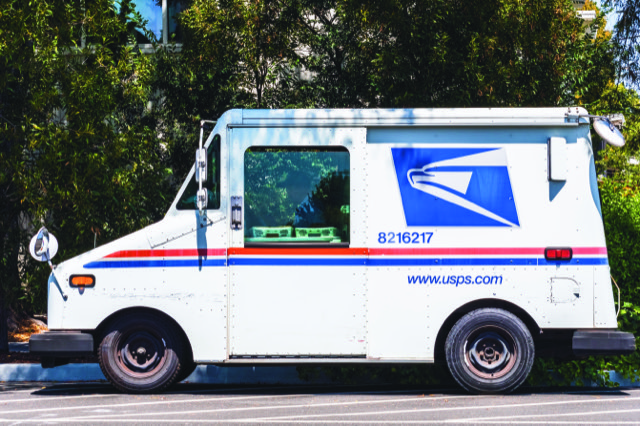“The Postal Service is a joke,” declared President Trump at a recent press briefing where he announced that he would not support any additional financial support for the United States Postal Service (USPS) unless it raised its package rates by 400 percent.
Independent analysts say an increase of that magnitude would ultimately hurt the USPS, not help the struggling agency. Political pundits say Trump’s motive appears to be aimed at Amazon in an attempt to hurt its chief executive, Jeff Bezos.
The United States Postal Service is one of the country’s most popular institutions, enjoying approval ratings as high as 90 percent. The USPS delivers 48 percent of the world’s mail to 160 million homes.
Although the USPS provides a service mandated by the Constitution and federal law, it has received no federal funds since 1982, relying on postal product sales to keep revenue ahead of expenditures.
Trump became more vocal about the USPS in March when a bipartisan plan to provide $13 billion to the agency—either in the form of a loan or direct funding was announced. The funding is necessary in large part because of the 2006 Postal Accountability and Enhancement Act, which established a 75 year prefunding mandate of payments towards health benefits for future retirees.
In defiance of Trump’s mandate, the House included $25 billion in direct funding for the agency and additional debt relief measures in its recent HEROES Act legislation.
Speaking to reporters, House Speaker Nancy Pelosi said, “We have to fight for the post office.”
“Their [Republicans] goal has always been to privatize, to make a profit off the Postal Service for private purposes,” Pelosi added. “We are for the public having the Postal Service meet the public interest not some special interest.”
The Trump administration however, believes that the agency must raise its rates and begin diverting more work to non-unionized outside contractors. And in early May, the board of governors for the USPS announced that it had selected Louis DeJoy, a North Carolina businessman and major Republican donor to be the next postmaster general, replacing a career postal employee with someone who is expected to be more sympathetic to the administration’s views.
The postal workforce has lost 126,000 career positions since 2009. It employs 7.3 million people over the whole industry and generates $1.6 trillion. Postal workers are still doing their jobs, despite the risks; so far 1,219 postal workers have tested positive for the coronavirus, and 54 have died.
The unions representing the employees have sent a clear message that the Postal Service is a public entity and should remain a public entity.
With vote by mail a very real possibility all over the nation, and tons of Americans ordering their groceries and other home supplies, the USPS must stay in business.






